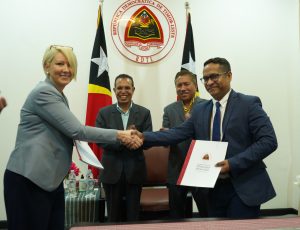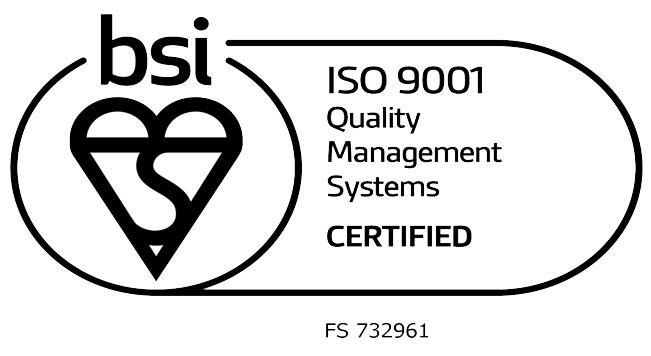Timor-Leste and IFC Partner to Ensure Preparations for CCS Project Meet International Best Practice
 A new partnership between the Government of Timor-Leste and IFC will ensure preparations for a carbon capture and storage (CCS) project in the Timor Sea meets global best practice while supporting the Southeast Asian nation in its greenhouse gas emissions mitigation efforts.
A new partnership between the Government of Timor-Leste and IFC will ensure preparations for a carbon capture and storage (CCS) project in the Timor Sea meets global best practice while supporting the Southeast Asian nation in its greenhouse gas emissions mitigation efforts.
Twenty years since independence and as the youngest country in Asia, Timor-Leste has identified private sector investment as key to unlocking future economic growth and jobs for its people. With its potential to generate new revenue streams for Timor-Leste, the Bayu-Undan Carbon Capture and Storage Project is seen as a key part of the country’s overall development strategy and its transition from fragility to resilience.
Under an agreement signed October 7, IFC will advise the government on international best practice and provide inputs to support it to develop a roadmap and appropriate legal and regulatory frameworks needed to enable the project to move forward.
IFC, a member of the World Bank Group, with funding from the World Bank Carbon Capture and Storage Trust Fund, will also conduct an assessment of the fiscal benefit sharing and local participation that would be expected to stem from the project as well as an assessment of regional carbon markets and CCS development. Based on these assessments, IFC will provide advice to the government on the best enabling environment to ultimately facilitate the successful development of the project by the private sector.
“This agreement with IFC will help to ensure that not only best practice is applied to this project but that the interest of Timor-Leste and its people are put first,” said Florentino Soares Ferreira, President of Timor-Leste’s National Authority of Petroleum and Minerals (ANPM). “Our goal is to establish Asia Pacific’s first large-scale offshore multi-user hub infrastructure for receiving and storing CO2 from multiple sources and industries.”
The Bayu-Undan reservoir is a mature gas field located in the Timor Sea which has been in production since 2004 but is expected to be depleted by 2023. The current operator of the field estimates the reservoir has the potential to safely and permanently store approximately 10 million tons of CO2 per annum.
“Timely development by the government of appropriate legal and regulatory frameworks that align with international best practices is fundamental to enable this project to proceed,” said Isabel Chatterton, IFC Regional Industry Director for Infrastructure, Asia and the Pacific. “IFC has a strong track record of successful cooperation with the government of Timor-Leste and hence it’s well placed to play the role of an honest broker and advisor by sharing knowledge, advocating for best practice environmental and social standards, and ensuring the robustness of the enabling environment for this project to eventually become a reality.”
Through its support for the Paris Agreement including Nationally Determined Contributions and Long-Term Strategies, the World Bank Group recognizes national circumstances and development priorities while making sure that clients can benefit from a wide range of viable and sustainable solutions that support climate and development. CCS technologies have been identified as a key tool for climate change mitigation and are incorporated in the International Panel on Climate Change (IPCC) modelled pathways for limiting global warming to 1.5 degrees Celsius.
About IFC
IFC—a member of the World Bank Group—is the largest global development institution focused on the private sector in emerging markets. We work in more than 100 countries, using our capital, expertise, and influence to create markets and opportunities in developing countries. In fiscal year 2022, IFC committed a record $32.8 billion to private companies and financial institutions in developing countries, leveraging the power of the private sector to end extreme poverty and boost shared prosperity as economies grapple with the impacts of global compounding crises. For more information, visit www.ifc.org.
Stay Connected
www.ifc.org/eastasia
www.twitter.com/IFC_EAP
www.youtube.com/IFCvideocasts
www.ifc.org/SocialMediaIndex
www.instagram.com\ifc_org
www.facebook.com/IFCeap
www.facebook.com/IFCwbg
About ANPM
The Autoridade Nacional do Petróleo e Minerais (ANPM) is a Timor-Leste public institution that was established under Decree Law No. 27/2019 of 27th August and the2nd amendment of Decree-Law No. 20/2008 of 19th June. In accordance with the Decree Law on the establishment of the ANPM, the Timor-Leste Petroleum Activities Law, Maritime Boundary Treaty and the Mining Code, ANPM is responsible for managing and regulating petroleum and mining activities in Timor-Leste’s exclusive offshore and onshore areas and in the Greater Sunrise Special Regime area. ANPM establishes and supervises compliance with rules and regulations covering the exploration, development, production, transportation and distribution of petroleum, natural gas, and minerals. For more information, please visit the ANPM website: http://www.anpm.tl/






